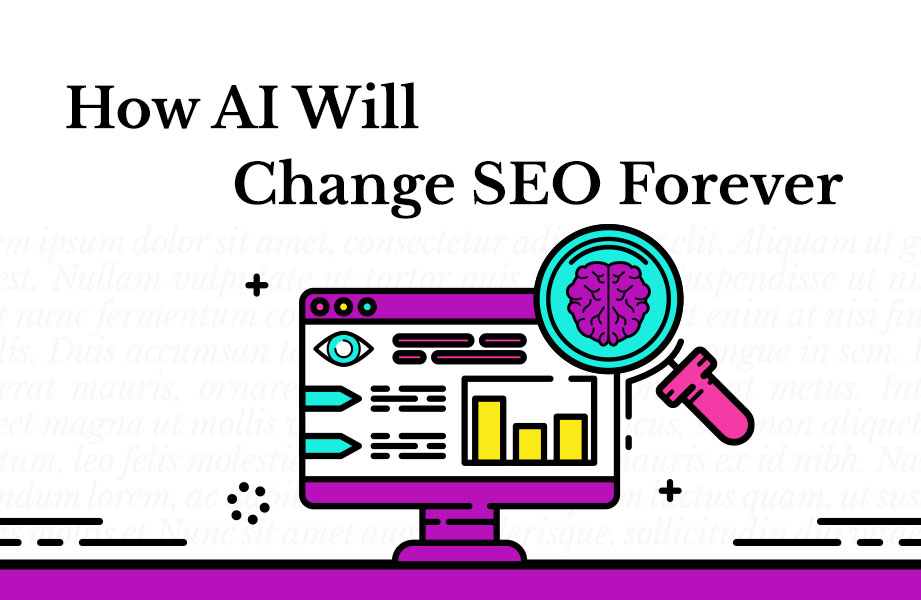Dystopian futures like those presented in the Matrix or present in the Terminator universe have never felt closer. AI seems to suddenly be a part of daily life especially out here on the Internet. Many are wondering what the long and even short-term effects of these new AI developments are going to be on things like content and SEO. At Phantom Copy, we have our own perspective on how AI will change SEO forever. Come with us as we enter the Matrix and look Skynet right in the eye.
What is Current AI Actually Doing?
It’s important to know, especially before we delve into the heart of this issue, that current AI is just that, artificial intelligence. It isn’t actual intelligence. It’s not doing anything that it wasn’t told to do and taught how to do. Yes, it can “learn” but only in ways that we have told it to.
Right now, the types of AIs that we are talking about, once like ChatGPT or even Google’s Bard are capable of in-taking information and even things like code and images, and regurgitating them in a way that looks human-crafted and is often entirely passable. The evolution that is significant is that it not only sounds human, but is able to combine multiple sources to get something that is more significant than a rewording.
Read More: Can You Copyright AI-Generated Content?
What AI Can Never Replace
Love it or hate it, there are a couple of things that AI is never going to replace.

- Original Information—Did news just occur? Did a new and unique product just get released? Do you have something to share about your life or business? When you have something entirely new to share with the Internet, and we hope that you do, the AI doesn’t have any resources to look at to adequately describe such a thing.
- Non-Derivative Creative—One of the many beautiful things of the human mind is how it can leap to a solution or an idea seemingly from nothing. Think of your favorite books, movies, or songs. Could AI generate that? It can’t, and we seriously doubt that it ever will. You can even see this play out in science too. For example, proteins and how they fold has long been a barrier to understanding some of the finer nuances of biology. Tasking an AI or a supercomputer with solving how these proteins can fold could take years in some cases, but humans, given the proper knowledge, often make logical leaps that computers and AI are just ill equipped to make. “Games” like FoldIt have been successfully devised to get humans to tackle this problem.
What AI Can Likely Never Replace
Unlike the last section, we are leaving room in this one for things that we don’t think AI will ever be able to handle properly but that is within the realm of remote possibility.

- Opinion—Much of the Internet is opinions, even much of the content out there with good SEO value has some degree of opinion behind it. Though AI can fake opinion to a degree, it is likely never going to be a genuine and valuable opinion to the human experience. Instead, it will just be a shadow image or even a distorted version of someone else’s opinion.
- Advanced Interpretation—Some of the better AI tools can look at information from multiple sources and even do some interpretation based on that, but when it comes to taking data and information a step beyond that and doing so intelligently, AI is going to fall short. As an example, consider electric vehicles. If we know the battery capacity and range of one vehicle and just the capacity of another, AI may have a guess as to the range, but if the first is a compact car and the second is a truck, the AI could easily ignore factors such as weight, drivetrain configuration, and aerodynamics when coming up with its answer. All things that a human write could quickly surmise with some degree of accuracy given enough knowledge in the field.
- Sensation/Emotion—When you are talking about a product, service, or experience, we often talk about feelings, sensations, or emotions. It’s not just a sales tactic, it’s what anchors us and your products/services into the human experience. AI can fake emotion and sensation, but it will never be able to capture it with the accuracy of a skilled content writer. If you are writing about the thrill provided by a sports car or the relief of having a plumbing issue taken care of, do you want an AI attempting to describe it?
What Does the Future Hold for AI and SEO?
For decades now, search engines like Google have crafted and honed their algorithms in an attempt to capture human intention. When searching for something like “Is it safe to paddle board with my dog?” It is the difference between being served up paddle board retail listings and dog toys or being served an in-depth blog article answering that topic and dog life jackets. In other words, search engines have put a lot of work into understanding your entire query.
With AIs set loose out there, creating content based on analytics and data, we could be looking at a saturation of AI generated “content.” This may seem like a good thing at first, but what happens when the AI starts feeding off itself? Building on the mistakes that it’s making, generating page after page of information that may soon no longer reflect reality as it amplifies its own distortions and mistakes over and over again through every iteration. It could turn the Internet into an ouroboros, a snake of information eating its own tail. Eventually the content will be tailored not for people, but for the AIs using it and “writing” it. Now imagine that it’s all happening on your site. Do you want to be serving up this kind of content?
Should You Be Optimizing Your Website For Voice Search?
Where Can AI Fit Into SEO?
Unfortunately, AI is going to be used for content generation—at least in the immediate future—unless it is reigned in by the search engines or the AI tools themselves. It’s unfortunate, but the payoff is going to be small for those that decide to utilize AI in this manner. There’s a time cost for ensuring accuracy, the platforms have their own cost that will likely grow as they find surer ground, and the content generated thus far just doesn’t have very good SEO.
However, AI does have a place in SEO. For starters, it can be great for outlining a topic, coming up with lists for potential keywords—most of which will need refinement—and curing the occasional writer’s block. As the power of AI grows, it may also be able to provide faster and better analysis of analytical data and keyword research. In short, AI can fill in a lot of holes in SEO though we do not think it has a place generating useful content.
Get Real Human Content Writers Working on Your SEO
If you decide that you want real human writers with an SEO background custom creating your content to your brand and your needs, then you need a Phantom. At Phantom Copy, we have a growing team of writers that know how to get your website ranking. Let us get to work for you.
